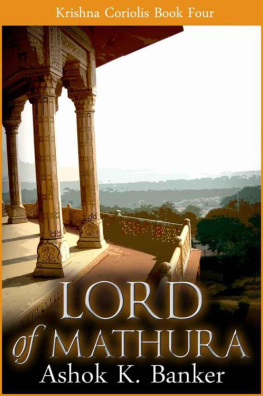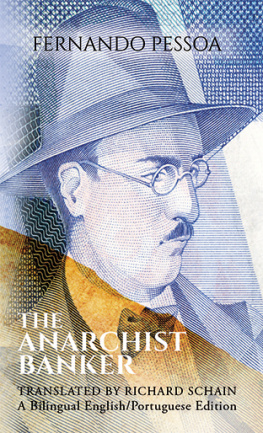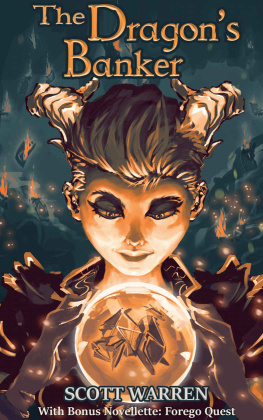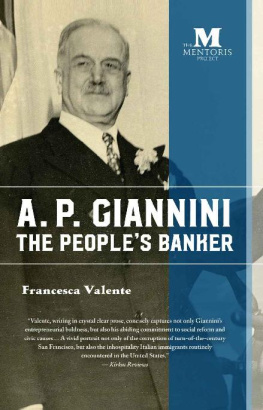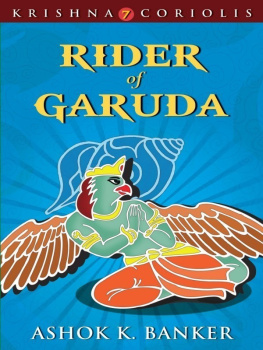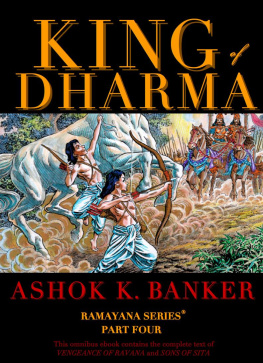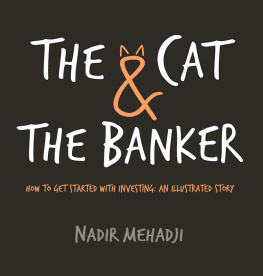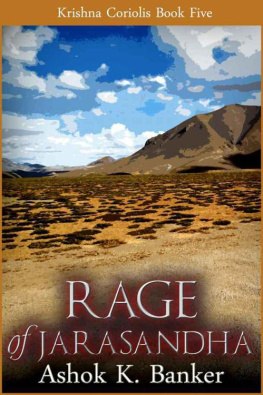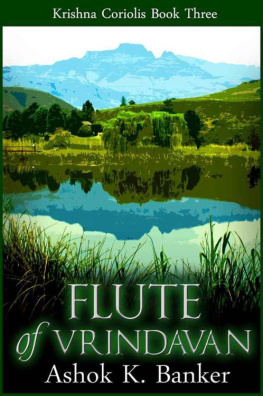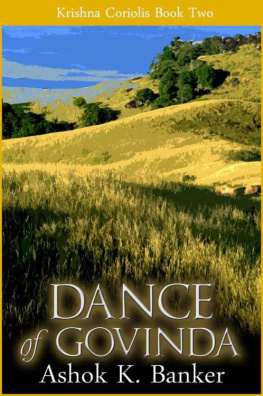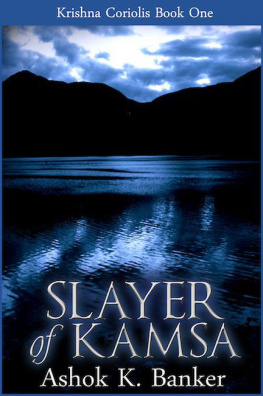Ashok K. Banker [Banker - Lord of Mathura
Here you can read online Ashok K. Banker [Banker - Lord of Mathura full text of the book (entire story) in english for free. Download pdf and epub, get meaning, cover and reviews about this ebook. year: 2012, genre: Detective and thriller. Description of the work, (preface) as well as reviews are available. Best literature library LitArk.com created for fans of good reading and offers a wide selection of genres:
Romance novel
Science fiction
Adventure
Detective
Science
History
Home and family
Prose
Art
Politics
Computer
Non-fiction
Religion
Business
Children
Humor
Choose a favorite category and find really read worthwhile books. Enjoy immersion in the world of imagination, feel the emotions of the characters or learn something new for yourself, make an fascinating discovery.
- Book:Lord of Mathura
- Author:
- Genre:
- Year:2012
- Rating:4 / 5
- Favourites:Add to favourites
- Your mark:
- 80
- 1
- 2
- 3
- 4
- 5
Lord of Mathura: summary, description and annotation
We offer to read an annotation, description, summary or preface (depends on what the author of the book "Lord of Mathura" wrote himself). If you haven't found the necessary information about the book — write in the comments, we will try to find it.
Krishna Coriolis Book 4
1st World Digital Edition
Ashok K. Banker [Banker: author's other books
Who wrote Lord of Mathura? Find out the surname, the name of the author of the book and a list of all author's works by series.
Lord of Mathura — read online for free the complete book (whole text) full work
Below is the text of the book, divided by pages. System saving the place of the last page read, allows you to conveniently read the book "Lord of Mathura" online for free, without having to search again every time where you left off. Put a bookmark, and you can go to the page where you finished reading at any time.
Font size:
Interval:
Bookmark:
Contents
LORD OF MATHURA
Ashok K . Banker
KRISHNA CORIOLIS
Book

AKB eBOOKS
AKB eBOOKS
Home of the epics!
RAMAYANA SERIES
PRINCE OF DHARMA
PRINCE OF AYODHYA & SIEGE OF MITHILA
PRINCE IN EXILE
DEMONS OF CHITRAKUT & ARMIES OF HANUMAN
PRINCE AT WAR
BRIDGE OF RAMA & KING OF AYODHYA
KING OF DHARMA
VENGEANCE OF RAVANA & SONS OF SITA
KRISHNA CORIOLIS SERIES
MAHABHARATA SERIES
MUMBAI NOIR SERIES
FUTURE HISTORY SERIES
ITIHASA SERIES
& MUCH, MUCH MORE!
only from

AKB eBOOKS
www.akbebooks.com
About Ashok
Ashok Kumar Bankers internationally acclaimed Ramayana Series has been hailed as a milestone ( India Today) and a magnificently rendered labour of love ( Outlook ). It is arguably the most popular English-language retelling of the ancient Sanskrit epic. His work has been published in 56 countries, a dozen languages, several hundred reprint editions with over 1.2 million copies of his books currently in print.
Born of mixed parentage, Ashok was raised without any caste or religion, giving him a uniquely post-racial and post-religious Indian perspective. Even through successful careers in marketing, advertising, journalism and scriptwriting, Ashok retained his childhood fascination with the ancient literature of India. With the Ramayana Series he embarked on a massively ambitious publishing project he calls the Epic India Library. The EI Library comprises Four Wheels: Mythology, Itihasa, History, and Future History. The Ramayana Series and Krishna Coriolis are part of the First Wheel. The Mahabharata Series is part of the Second Wheel. Ten Kings and the subsequent novels in the Itihasa Series dealing with different periods of recorded Indian history are the Third Wheel. Novels such as Vertigo, Gods of War, The Kali Quartet, Saffron White Green are the Fourth Wheel.
He is one of the few living Indian authors whose contribution to Indian literature is acknowledged in The Picador Book of Modern Indian Writing and The Vintage Anthology of Indian Literature. His writing is used as a teaching aid in several management and educational courses worldwide and has been the subject of several dissertations and theses.
Ashok is 48 years old and lives with his family in Mumbai. He is always accessible to his readers at www.ashokbanker.comover 35,000 have corresponded with him to date. He looks forward to hearing from you.
PRARAMBH
The song of the flute filled the hamlet of Vrindavan.
Its sweet mournful melody carried to the remotest eaves and highest treetops and no creature that heard it failed to be moved.
Its daily presence brought comfort and strength to the denizens of that secluded valley, assuring them that they were safe and secure in this little world away from the world at large, that someone powerful and benevolent watched over them constantly, and that any threat would be dealt with at once. But there was another message imparted by the flute: one embodied by the sweet sadness of its song. This said that life and all its pleasures were finite and would end someday, and all we could do was make the best of the time we have for it will not last. It mourned the lost brothers and sisters of the Vrishni who were here in voluntary exile from their beloved homeland, it mourned the tragedy that had befallen the Yadava nation as a whole, it shared the grief of love and loss, death and failure, war and vengeance.
The flute sang of things that could not be spoken, things that were felt but left unsaid, things that had happened before and would happen again, inevitably, but not now, not just yet. The flute song was the pause between battles, the respite between wars, the rare moment of peace between the violence of yesterday and the madness of tomorrow. The flute was what kept the Vrishni sane and whole and nourished them with the nectar of hope each fine day in Vrindavan. The flute was their reason for going on, for facing each new day with confidence, for living.
When the song was done, the hand that played the flute lowered the instrument. The player wiped the wooden reed on his brightly colored anga-vastra before tucking it securely into his waistband sash. Even now, despite all that had gone before, he was still just a boy.
Yet there was a sense of serenity about him that belied his years. His dark face could be sombre and brooding like a monsoon cloud yet when he smiled his white teeth flashed in that dark space like lightning against a pitch-black sky. His hot brown eyes gleamed with life, danced with intelligence. His smile tended to crease one cheek more than the other, giving him a sly rascally look that portended mischief. Unconcerned about his appearance and grooming, he nevertheless managed to always look fetching, almost girlishly handsome. In contrast to his brothers fair-skinned bullish bulk, he was a slender dark calf.
Already, the mother gopis gossiped about what a handsome young man he would turn out to be and how some young gopi would be very lucky to have him as her mate. Child marriage was common among Yadavas but not always compulsory. In the case of a clan headman such as Nanda Maharaja, his sons could choose their mates when they pleased. The Vrishni, even more than other Yadavas, appreciated the finer emotions and the heart played as important a part in that choice as other factors such as clan, tribe, gotra and family. In Krishnas case, he was already a prince among gopas and could have any gopi of his choice for a paramour and wife.
The younger gopis returning from the pastures, herding their calves before them, were proof of this adoration: every last one smiled and waved and greeted him as they went by, praising his flute playing. He smiled enigmatically as he always did, saying nothing, but acknowledging them all and somehow making each one feel as if it were she alone that he had smiled at so fetchingly. They ran giggling, happy, to pen their calves for the night.
Lazy summer was working its way slowly towards autumn and the cowherds of Vrindavan spent the evenings indulging in their favorite ras-lila pastime. When the work was done for the day, everyone looked forward to a few hours of companionship and respite. The cowherds life was a simple one: hard-working, responsible and honest with no unendurable hardships or glamorous highs, merely an endless series of routine repetitions, day after day, season after season. After the first traumatic year of exile, the idyllic hamlet of Vrindavan now seemed like home itself to the Vrishni and they had already come to love and enjoy its bounty.
Krishna wandered down the dales and glens, pastures and pens, hills and dips, lakesides and wooded areas, playing his flute. At the meadow where the community played ras-lila, every gopi waited and hoped to see him appear. More than one dreamed romantic dreams of herself with Yashodas dark-hued son. But today Krishna was not in the mood to play. Today he felt his heart ache with a peculiar sadness, a commingling of the dusky languidness of evening and the satisfaction of a long days hard work mixed with the certainty that this season of peace and calm would not last, that it was but a lull before the coming storm, and when that storm came, it would be terrible in rage.
He did not feel fear exactly for despite his mortal form, he was Himself incarnate and as such immune to the weaknesses and injuries of flesh and mortality. But he had come to care deeply about the people amongst whom he lived and he knew they would pay a price for sheltering himwere already paying a price indeed, for here they were, in exile from their beloved home pastures. Many mortals believed that to be able to see the future would be a wondrous gift but those immortals who did see the future knew that it was no gift, nor wondrous. For the future, like the past, like life itself, contained not only good, wonderful things and events, but also many dark, terrible, painful things. What person could want to know all the bad that would befall them before it happened? Mere knowledge of it alone would cast a backward shadow over all the rest of that persons existence. And so, in Krishnas case, that shadow loomed long and large, for he could see all the way into Eternity.
Next pageFont size:
Interval:
Bookmark:
Similar books «Lord of Mathura»
Look at similar books to Lord of Mathura. We have selected literature similar in name and meaning in the hope of providing readers with more options to find new, interesting, not yet read works.
Discussion, reviews of the book Lord of Mathura and just readers' own opinions. Leave your comments, write what you think about the work, its meaning or the main characters. Specify what exactly you liked and what you didn't like, and why you think so.

